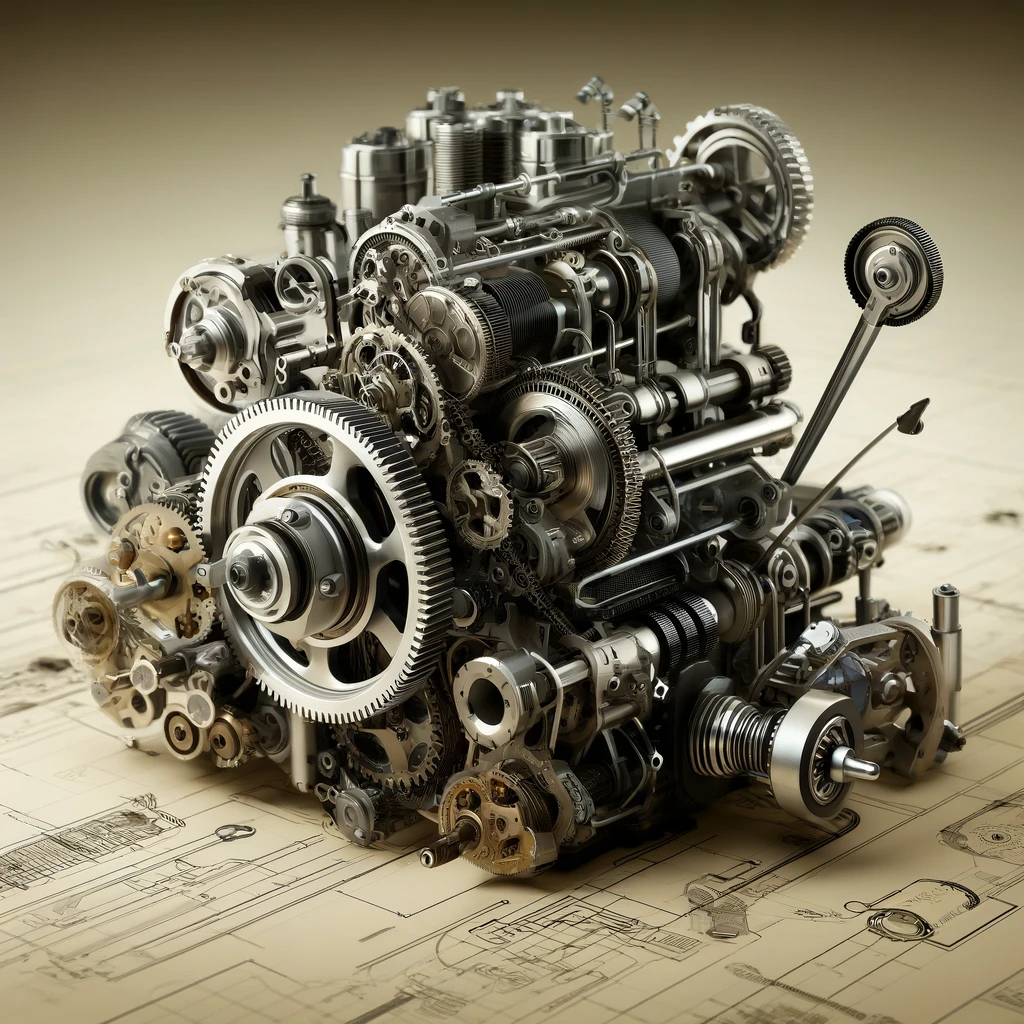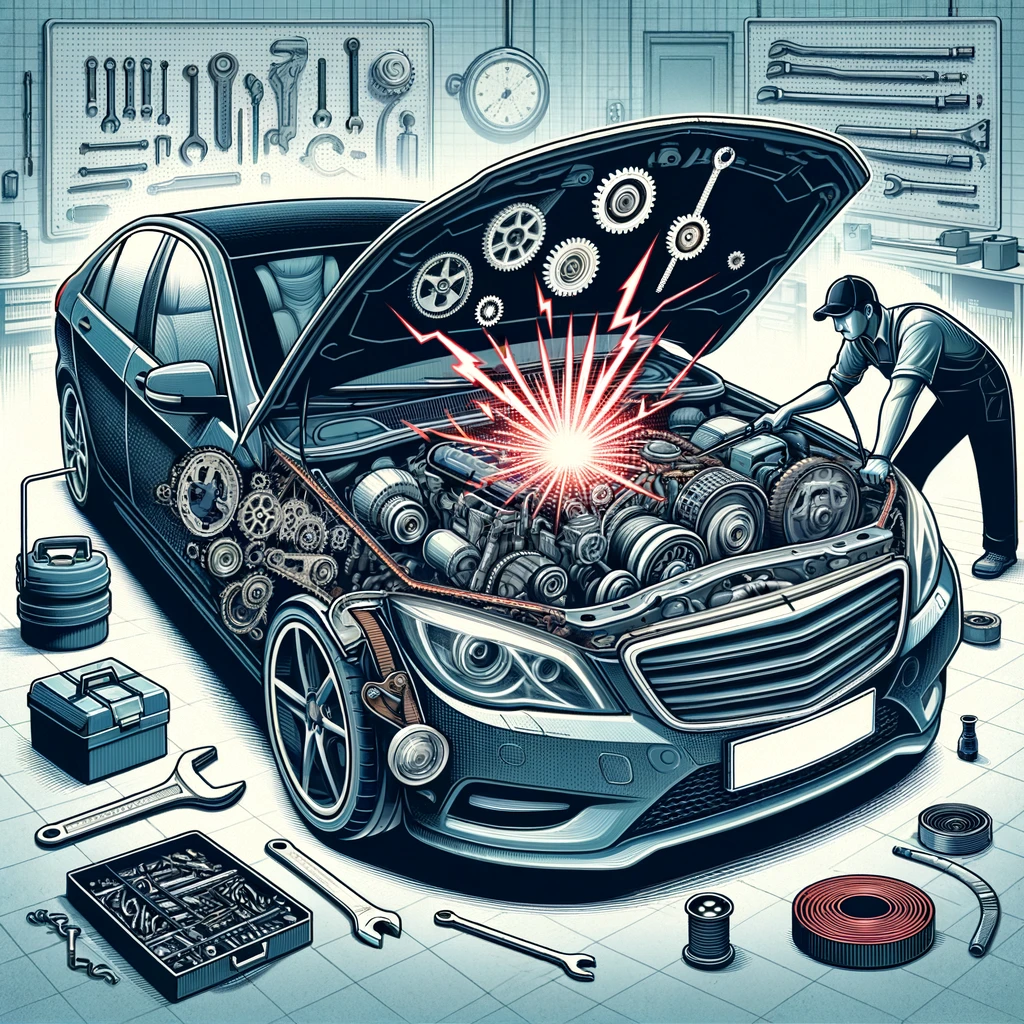Mechanical
Definition
Relating to machinery or tools and the physical laws and principles they operate under.
Parts of Speech
- Adjective
- Noun (less common)
Pronunciation
American English
- IPA Pronunciation: /məˈkænɪkəl/
- Respelling: muh-KAN-i-kuhl (with "muh" as in "sofa," "KAN" as in "can," "i" as in "sit," and "kuhl" as in "cuddle")
British English
- IPA Pronunciation: /məˈkænɪkəl/
- Respelling: muh-KAN-i-kuhl (with "muh" as in "sofa," "KAN" as in "can," "i" as in "sit," and "kuhl" as in "cuddle")
In both dialects, "mechanical" places the primary stress on the second syllable, "KAN." The pronunciation is the same across both American and British English, focusing on the clear articulation of "muh-KAN-i-kuhl."
Etymology
Derived from Latin "mechanicus", meaning "pertaining to machines". The term can be traced back to Ancient Greek "μηχανικός" (mēkhanikós) which refers to the machinery or the arts of a mechanic.
Derivatives
- Mechanically
- Mechanic (related noun)
- Mechanicship
- Mechanicalness
- Mechanical engineer
Synonyms
- Automated
- Machine-driven
- Motorized
Antonyms
- Manual
- Natural
- Organic
Usage
- The watch has a mechanical movement that requires winding.
- His response seemed purely mechanical, without any emotion.
Related Terms
- Engineering
- Robot
- Device
- Gadget
- Mechanics
Detailed Definition
Adjective
- Pertaining to or involving machinery or tools.
- Example: The car has a mechanical fault that needs fixing.
- Produced or operated by a machine or machinery.
- Example: The mechanical clock needs to be wound regularly.
- Lacking spontaneity, originality, or individuality; done routinely or as a habit.
- Example: He gave a mechanical smile as he greeted the guests.
Noun (less common)
- A mechanical object, device, or part.
- Example: The clock's mechanicals are intricate and require precision.
mechanical



🇨🇳 Mandarin
- 机械的 (Jīxiè de)
- IPA: [t͡ɕí.ɕjè dɤ]
- Respell: Jee-sheh duh
- 机械性 (Jīxiè xìng)
- IPA: [t͡ɕí.ɕjè ɕìŋ]
- Respell: Jee-sheh sheeng
🇮🇳 Hindi
- यांत्रिक (Yāntrik)
- IPA: [jaːnt̪ɾɪk]
- Respell: Yaan-trik
- मैकेनिकल (Maikenikal)
- IPA: [maɪkenɪkal]
- Respell: My-ken-i-kal
🇪🇸 Spanish
- Mecánico
- IPA: [meˈkaniko]
- Respell: Meh-kah-nee-ko
- Mecánica
- IPA: [meˈkanika]
- Respell: Meh-kah-nee-kah
🇫🇷 French
- Mécanique
- IPA: [mekanik]
- Respell: May-kah-neek
🇸🇦 Modern Standard Arabic
- ميكانيكي (Mīkānīkī)
- IPA: [miːkaːniːkiː]
- Respell: Mee-kaa-nee-kee
🇧🇩 Bengali
- যান্ত্রিক (Yāntrik)
- IPA: [jantroik]
- Respell: Yaan-trik
🇷🇺 Russian
- Механический (Mekhanicheskiy)
- IPA: [mʲɪxɐˈnʲit͡ɕɪskʲɪj]
- Respell: Mee-ha-nee-chees-kee
- Механическая (Mekhanicheskaya)
- IPA: [mʲɪxɐˈnʲit͡ɕɪskəjə]
- Respell: Mee-ha-nee-chees-kah-ya
🇵🇹 Portuguese
- Mecânico
- IPA: [mɨˈkɐniku]
- Respell: Meh-kah-nee-koo
🇮🇩 Indonesian
- Mekanis
- IPA: [mɛkanis]
- Respell: Meh-kah-nees
🇩🇪 German
- Mechanisch
- IPA: [mɛˈxaːnɪʃ]
- Respell: Meh-haah-nish
🇯🇵 Japanese
- 機械的 (Kikaiteki)
- IPA: [ki.ka.i.te.ki]
- Respell: Kee-kah-ee-teh-kee
🇻🇳 Vietnamese
- Cơ khí
- IPA: [kɔ˧˩ kʰi˧˥]
- Respell: Kuh khee
🇰🇷 Korean
- 기계적인 (Gigyejeogin)
- IPA: [ɡi.ɡje.dʑʌ.ɡin]
- Respell: Gee-gyeh-jeo-gin
🇹🇷 Turkish
- Mekanik
- IPA: [mekanik]
- Respell: Meh-ka-neek
🇵🇰 Urdu
- میکانیکی (Mekānikī)
- IPA: [meːkaːniːkiː]
- Respell: Meh-kaa-nee-kee





